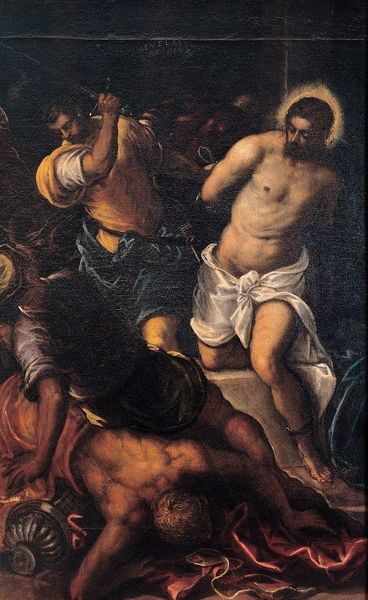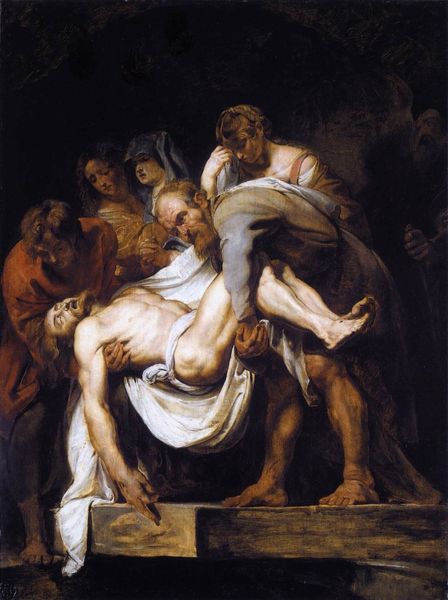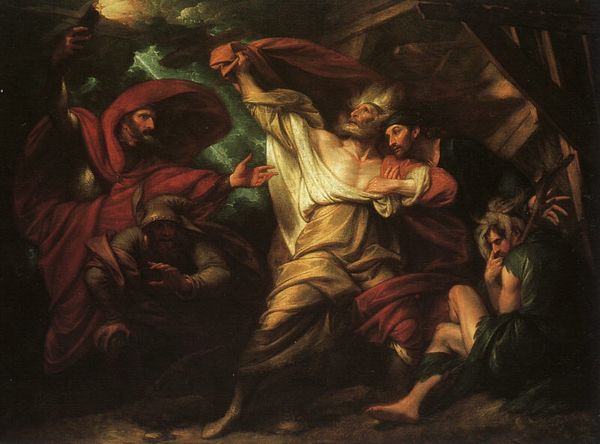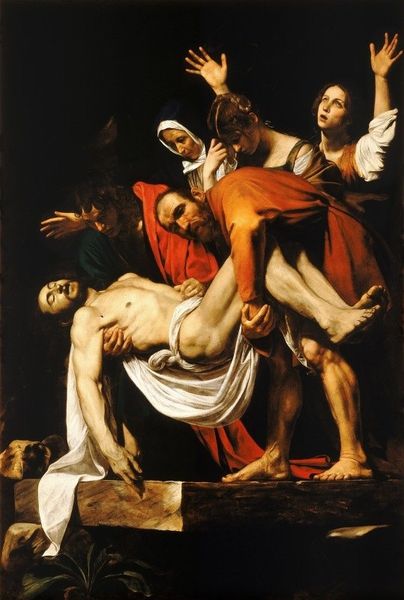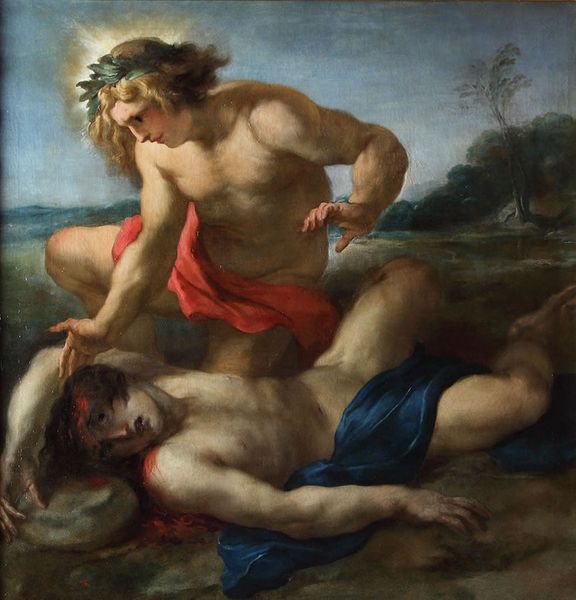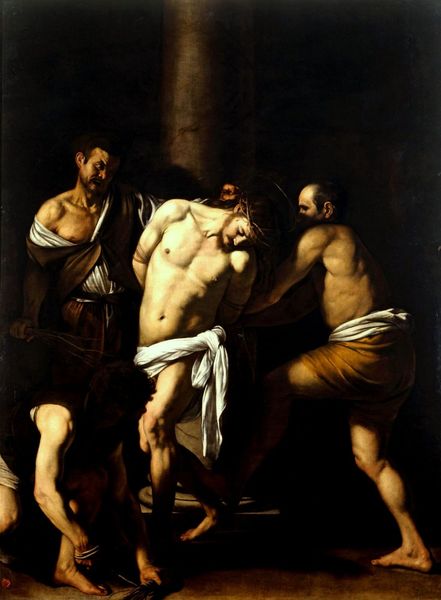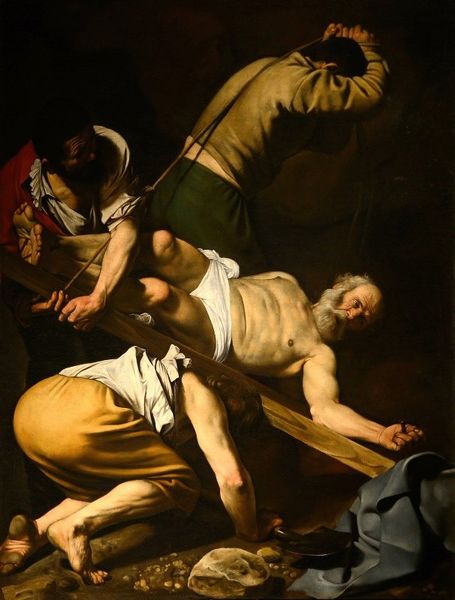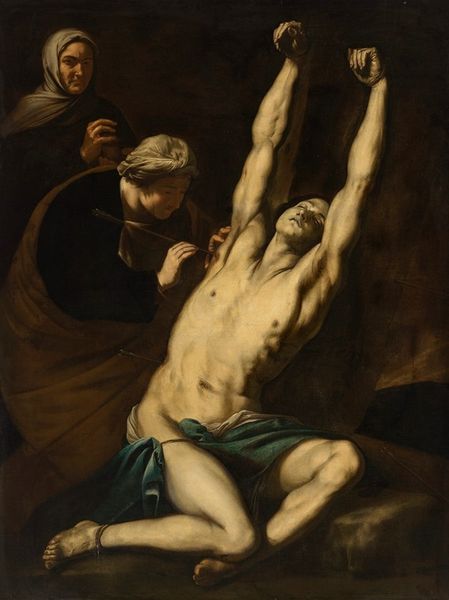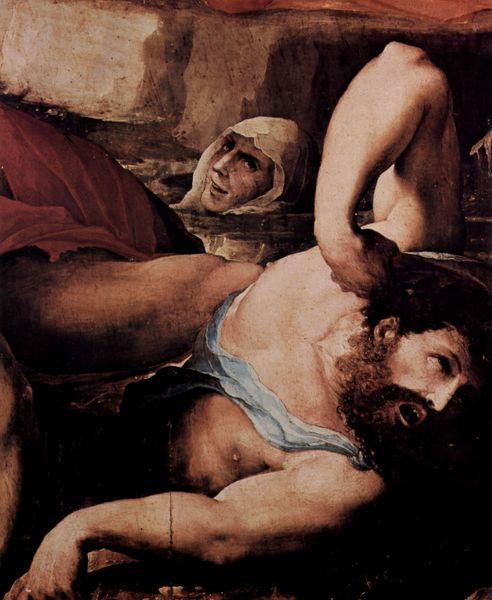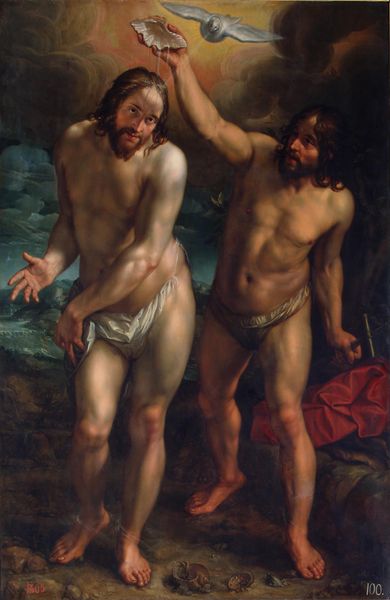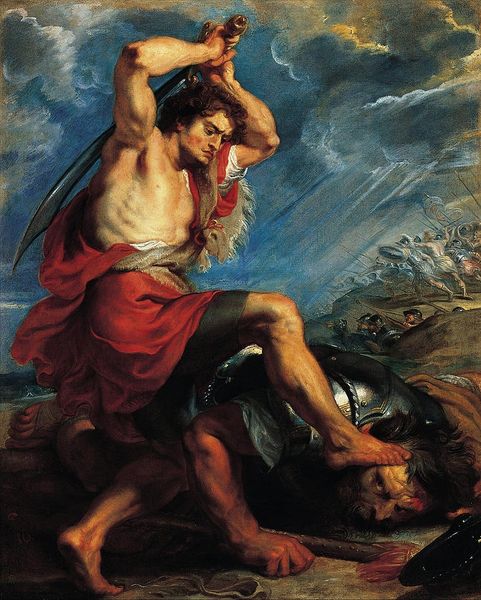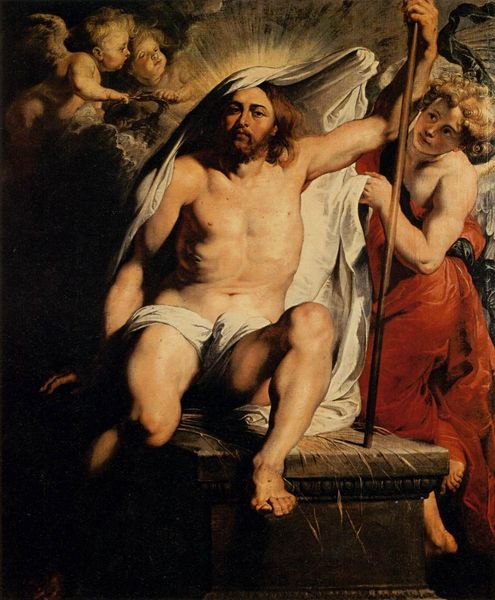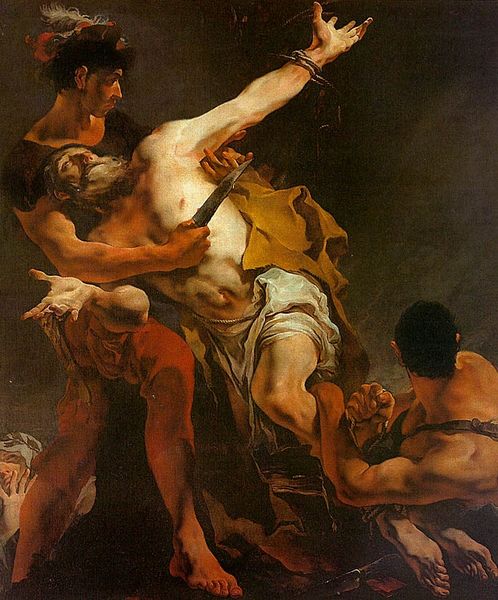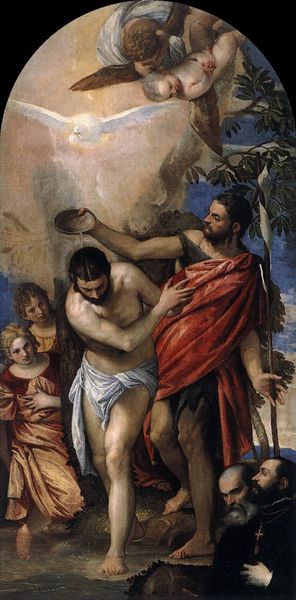
#
portrait
#
baroque
#
figuration
#
oil painting
#
christianity
#
men
#
history-painting
#
nude
#
portrait art
Copyright: Public domain
Jusepe de Ribera, a Spanish artist working in Naples, likely painted this intense oil on canvas, “The Martyrdom of St. Bartholomew,” around 1630. Ribera’s image is part of a long tradition of religious painting, visualizing sacred stories for the largely illiterate population. But rather than idealizing his figures, Ribera grounds them in harsh reality, influenced by the naturalism of Caravaggio. Note how Bartholomew, contorted and aged, bears the marks of suffering as he is brutally flayed. This was a period of intense religious and political conflict. The Catholic Church was still reeling from the Reformation and sought to reaffirm its authority through dramatic displays of faith. Paintings like this served a didactic purpose, reminding viewers of the ultimate sacrifice made by saints and encouraging unwavering devotion. We can research theological texts and the history of the Inquisition to appreciate the painting's original social context. Only then can we truly understand its power and purpose.
Comments
No comments
Be the first to comment and join the conversation on the ultimate creative platform.
